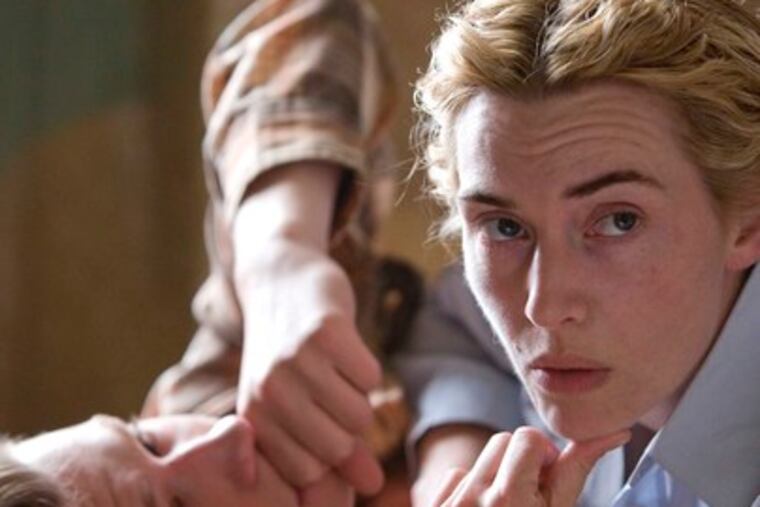The story of a an entanglement across decades
A version of this review originally appeared Thursday. Movies are like waves. When you catch one at the right place and time, before it breaks, you ride it, propelled by its force until it deposits you at the shoreline. But when you don't quite catch it, you scramble and splash, scraping yourself on ocean bottom as you fight it.

A version of this review originally appeared Thursday.
Movies are like waves. When you catch one at the right place and time, before it breaks, you ride it, propelled by its force until it deposits you at the shoreline. But when you don't quite catch it, you scramble and splash, scraping yourself on ocean bottom as you fight it.
I had both experiences at
The Reader
, Stephen Daldry's cool and detached account of the hot and intimate affair between a mature woman and a secondary-school student in Germany, circa 1955, a brief tryst with repercussions down the decades.
It is based on the semiautobiographical book (and Oprah book-club pick) by Bernhard Schlink about the effects of the Holocaust on the generation of Germans that came of age in the 1950s. For the screen the novel has been padded and plumped, not always successfully, by playwright David Hare.
With this film Daldry, previously the director of
Billy Elliot
and
The Hours
, proves himself the screen's reigning master at showing passion thwarted or repressed, this time to a propulsive Philip Glass-lite score from Nico Muhly.
In
The Reader
the narrative flashes forward and back among the 1950s, 1960s and 1990s. In the 1990s segments Ralph Fiennes is a German lawyer, Michael Berg, who lives in an apartment so pristine that it might be occupied by one who wears gloves, so as to leave no fingerprints. Why does Fiennes, one of the most compelling actors of his generation, so often play Our Man of Perpetual Sorrows, a figure whose alabaster face is frozen in anguish, an expression that might be confused with constipation?
As I pondered the question - while resisting
The Reader
- the movie flashed back to the 1950s, as the much more expressive teenage Michael Berg (David Kross) walks the street of a mid-size German city, clutching his stomach, retching near the entrance of an apartment block.
At this moment Hanna (Kate Winslet), a tenant in the building, approaches, efficiently disposes of the vomit, and orders Michael to her apartment, where she washes his soiled clothes as he huddles, naked, in the bath.
Months later, when Michael comes to thank Hanna for her kindness, woman and manchild become enmeshed in an affair that takes both by surprise. Hanna's preferred foreplay is that Michael read to her, and he does - Homer, Mark Twain and D.H. Lawrence inflame their ardor.
Daldry and Hare aim to make a film about how Nazism casts its long shadow on the 20th century. In that light,
The Reader
is not particularly pointed. Yet as a story of an enmeshment not easily untangled, a story of two lost souls who find each other, I was deeply moved. Especially by Winslet and Kross - and, in the end, by Fiennes.
The Reader *** (out of four stars)
Directed by Stephen Daldry. With Kate Winslet, Ralph Fiennes and David Kross. Distributed by the Weinstein Company.
Running time:
2 hours, 3 mins.
Parent's guide:
R (nudity, discreet sexuality, mature themes)
Showing at:
The Ritz Five, Showcase at the Ritz Center, and Bryn Mawr Film Institute